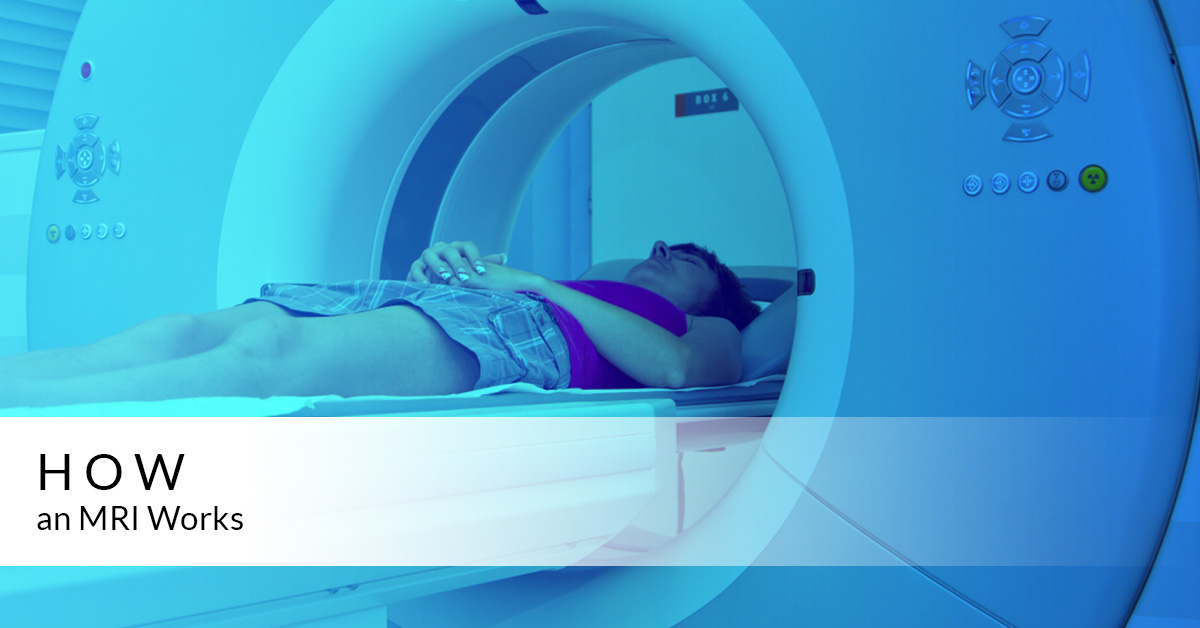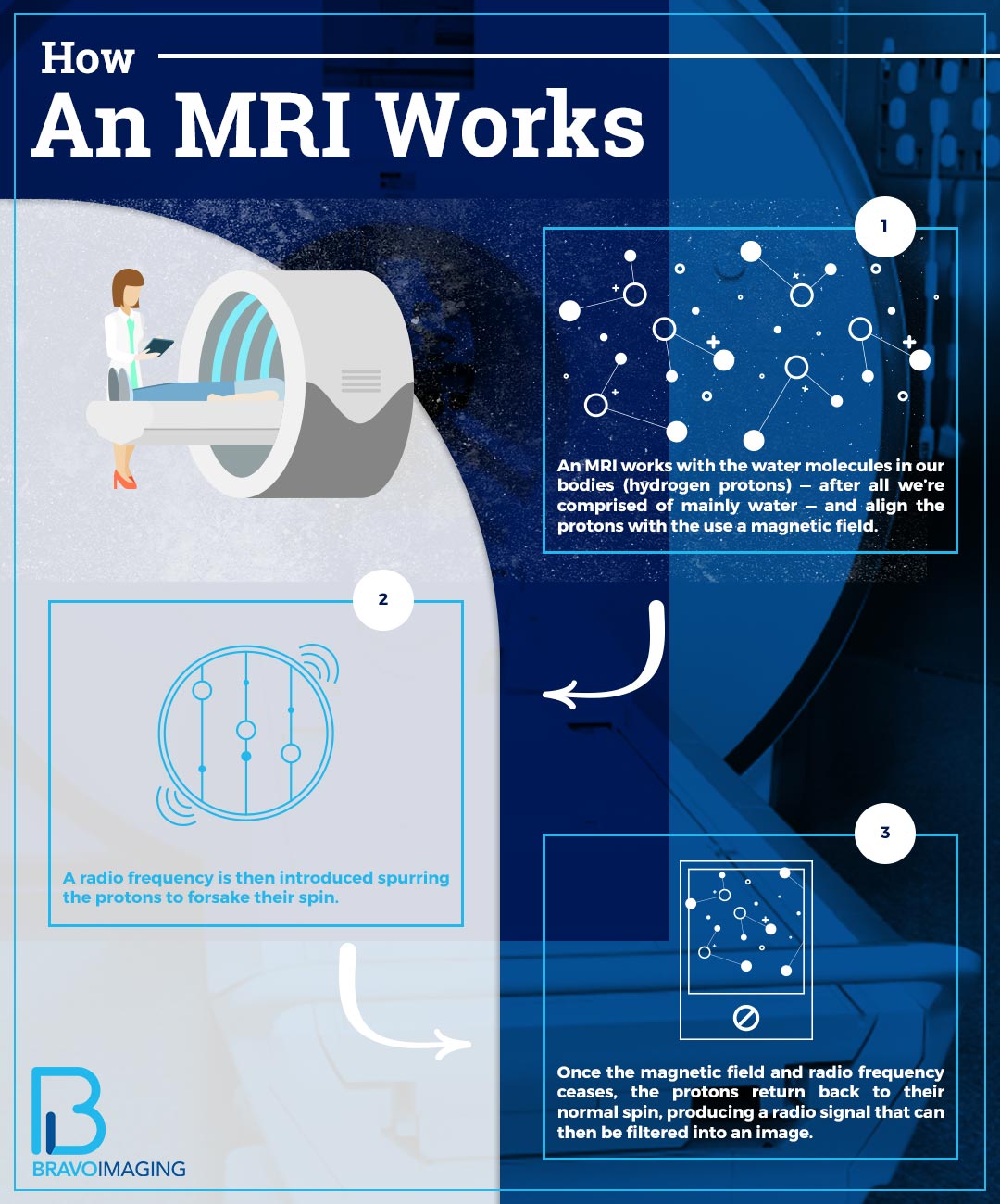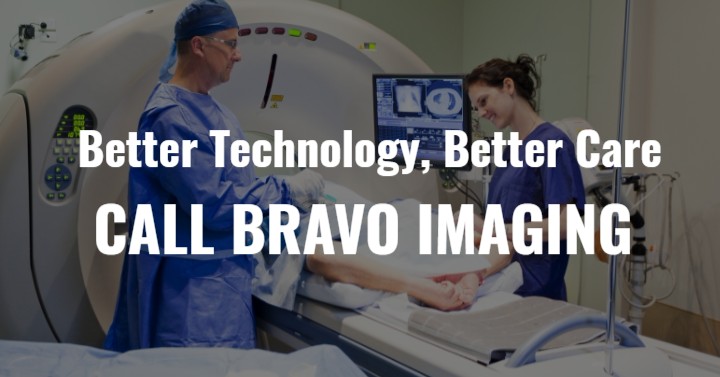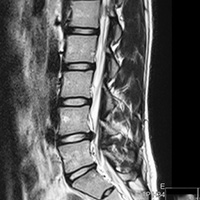MEDICAL IMAGING SPECIALISTS

How An MRI Works
An MRI stands for magnetic resonance imaging and implements a magnetic field and radio waves combined with a computer to produce images of your internal body. An MRI is a diagnostic tool used to identify concerns in the brain, abdomen, chest, and pelvis, and can be used to monitor your baby if you’re pregnant. Specifically, an MRI is excellent for sports-related injuries and can detect issues related to your joints, cartilage, muscles, tendons, and ligaments, and an MRI can detect strokes, spinal cord injuries, aneurysms, tumors, in addition to eye and ear issues.
 This comprehensive medical marvel gives doctors the ability to treat and diagnose illness and disease much more rapidly with much more precision than we’ve ever seen in the past.
This comprehensive medical marvel gives doctors the ability to treat and diagnose illness and disease much more rapidly with much more precision than we’ve ever seen in the past.
At Bravo Imaging, we provide medical imaging repair and are a trusted MRI supplier. We know the importance of radiology technology and strive to provide the best in MRI equipment. Follow along in today’s post, and learn the intricacies of how an MRI machine works.
An MRI Explained!
Because an MRI is a widely accepted and used diagnostic tool, we can easily forget how amazing it is for the images to magically appear in great detail on computer screens — and most people don’t even know how this happens!
An MRI works on the water molecules in our bodies and since were comprised of mostly water, the hydrogen nuclei (protons) that were once scattered, become aligned in a magnetic field. When you enter the MRI machine, the magnet spins and applies roughly 0.2 to 3 teslas — one thousand times stronger than a refrigerator magnet — and spins while you’re in it.
Simultaneously, the machine also produces a radio frequency that then creates a fluctuating magnetic field that the protons are then able to absorb the energy and forsake their spins. When the magnetic field ceases, the protons — in an effect called precession — return to their normal spin patterns. As this is happening, a radio signal is produced and filtered into an image we see on the computer.
Different types of body tissues are determined because they all return to their spins at different rates and the contrast can also be adjusted between various types of tissues.
Different Types of an MRI
There are countless types of MRIs, but the diffusion and functional MRI are some of the most common.
- Diffusion MRI – A diffusion MRI finds how water is diffused through different tissues, thus disease processes. Specific disease patterns have a restrictive rate of diffusion, and this type of MRI can detect this and diagnose conditions such as a tumor or stroke.
- Functional MRI – A functional MRI (fMRI) is implemented to look at brain activity, and detects any changes in blood flow through the different regions. It is wonderful for looking at specific areas and can show how a region is functioning, in addition to identifying a traumatic brain injury (TBI) or Alzheimer’s disease.
MRIs are a safe option.
Radiology catches a lot of concern over the potential cancer-causing radiation some of the machines produce, but unlike CT scans or X-rays, an MRI does not use radiation, making it a safer diagnostic tool for patients. MRI is even used on pregnant women, and it has been observed that there are no adverse signs or effects on the fetuses.
An MRI is contraindicated in patients who have metal implants, pacemakers, cochlear implants, artificial joints and valves, or any other metal pieces such as screws, plates, and rods. Because an MRI utilizes a large and powerful magnetic field, these things can move or produce heat when exposed.
MRIs have made modern medicine possible and have increased our diagnostic technology exponentially. An MRI uses magnets and radio waves to align our proton’s in a way that produces an image. Different types of MRIs exist, with the most common being a diffusion MRI that is great for observing the rate of water diffusion in different tissues to detect disease states, and an fMRI geared towards detecting blood flow abnormalities in the brain and diagnosing brain-related conditions. Because MRIs do not employ radiation, they are safe for most people, even those who are pregnant.


